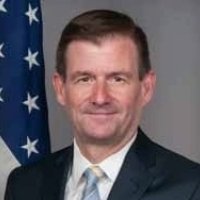Beyond Afghanistan: U.S. Perspectives on the Future of U.S.-Pakistan Relations
With American forces withdrawing from Afghanistan, the future of U.S-Pakistan relations is uncertain. This event draws on the perspectives of those that have focused on Pakistan while serving in the U.S. government. The event considers to what extent Afghanistan will continue to be a focus of the relationship; what factors might shape the relationship's trajectory post-Afghanistan withdrawal; what prospects there may be for broader cooperation beyond security; and how the relationship can be positioned constructively moving forward.
Key Takeaways
- While many have predicted Pakistan will no longer be relevant to the U.S. after American troops withdraw from Afghanistan, China-Pakistan friendship ensures that Pakistan will remain relevant for the United States.
- Despite an unfavorable geopolitical environment that entails the U.S. and Pakistan having close ties with each other’s rivals (India and China, respectably), there are still opportunities for collaborations in non-security spaces. When interests align, there can still be cooperation.
- Pakistan has stopped responding to US carrot and stick tactics. It now seeks strengthened ties rooted in geoeconomics.
Key Quotes
David Hale:
“Pakistani leaders have to protect their national interests. We can’t make them behave the way we want them to behave.”
Nadia Naviwala:
“Many Pakistani officials are tilted towards the West, and hence we have leverage. It is important to remember that it is on us just as much it is on Pakistan to work out a relationship.”
Tamanna Salikuddin
“We now view Pakistan from a China lens. We can’t wish away ties with China, so we have to ask ourselves how we can shape [a] productive relationship with the US [and Pakistan].”
James Schwemlein:
“Pakistan is one of the few countries with high levels of access to China, European countries, and the US. We cannot ignore that.”
About the Speakers
Ambassador David Hale is a distinguished diplomatic fellow at the Wilson Center. He was previously U.S. ambassador to Pakistan, from 2015 to 2018. His most recent position was under secretary of state for political affairs. His other past positions include ambassador to Lebanon, special envoy for Middle East peace, deputy special envoy for Middle East peace, and ambassador to Jordan.
Nadia Naviwala is a Wilson Center global fellow, and an independent researcher and writer. She has previously worked in Islamabad as Pakistan country representative for the U.S. Institute of Peace. Before that, she was a Pakistan desk officer at USAID and a national security aide in the U.S. Senate. Her other past positions include serving as an associate with the Carr Center Program on State-Building and Human Rights at Harvard.
Tamanna Salikuddin is director of South Asia programs at the U.S. Institute of Peace. She joined USIP after 12 years in the U.S. government. Her positions included senior advisor to the special representative for Afghanistan and Pakistan at the State Department (2014-2017) and director for Afghanistan and Pakistan at the National Security Council (2011 to 2013). She was also a political officer at the U.S. embassy in Islamabad.
James Schwemlein is a senior director with Albright Stonebridge Group and a nonresident scholar at the Carnegie Endowment for International Peace. He previously served at the World Bank and the State Department. At State, he was a trade policy officer and also a senior advisor to the special representative for Afghanistan and Pakistan, where his focus included U.S. development and economic programs.
Speakers

Former Under Secretary of State for Political Affairs; Former Ambassador to Pakistan, Lebanon, and Jordan

Independent Writer on Foreign Aid, Local Philanthropy, Civil Society, and Education in Pakistan; Former USIP Country Representative for Pakistan, Former USAID Pakistan Desk Officer; Former U.S. Senate National Security Aide; Former Public Policy Fellow;
Moderator

Hosted By

Indo-Pacific Program
The Indo-Pacific Program promotes policy debate and intellectual discussions on US interests in the Asia-Pacific as well as political, economic, security, and social issues relating to the world’s most populous and economically dynamic region. Read more
